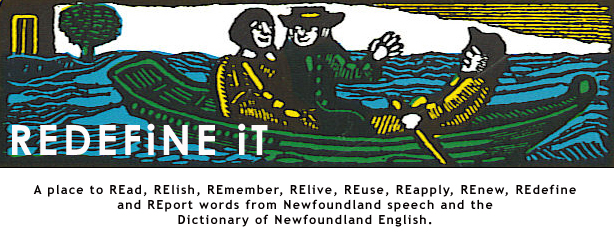An intriguing excerpt from the Award of the Fishery Commission, Documents and Proceedings of the Halifax Commission, 1877, under the Treaty of Washington. Read the whole document here.
Q. Are you aware as to any practice on the part of the American bank or deep-sea fishermen of throwing small fish overboard? — A. Yes; I have been on many occasions told they always threw the small fish overboard — fish under 22 inches in length, they told me. These fish were not suited to their market and were thrown overboard. That had been their practice, I know, for years.
Q. Since the operation of the Washington Treaty, what practice has grown up with regard to those small fish ? — A. They save the fish now and bring them into Newfoundland market, and sell them there at from $1.50 to $2 per quintal.
Q. And over, I believe ? — A. I believe so, but I speak within the mark when I say from $1.50 to $2 per quintal. The quantity each vessel would catch would be about 200 quintals. That is, the quantity every vessel would otherwise have thrown overboard would be 200 quintals.
Q. How do you get your information ? — A. I got it through the captain of an American vessel.
Q. His estimate was that every American banker would throw overboard 200 quintals? — A. About 200 quintals of small fish during a successful voyage. [ . . . ] there is a duty on fish brought into Newfoundland of $1.30 per quintal, which the American fishermen are now relieved of under the Washington Treaty.
Q. Figure that amount up, supposing the vessels to number 300. — A. 300 vessels at 200 quintals each vessel, would be 60,000 quintals of fish, which at $1.30 per quintal would give $78,000 as the amount of duty saved by 300 sail of vessel on fish brought into Newfoundland. There is also the value of the fish which would be thrown overboard if the American fishermen were not permitted to bring it into the Newfoundland market. At the low estimate of $1.50 per quintal the amount would be $90,000; and at $2, $120,000.
Q. That fish is very lightly salted ?— A. It is lightly salted; they salt it to meet the Newfoundland market; they formerly threw it away. So soon as they discovered there was a market for the small fish, that it was well adapted for the Brazils, they immediately salted it lightly, as the Newfoundland manner is, for sale in Newfoundland. They would otherwise have thrown it away.
Q. What quantity of salt would be used on that fish — 100 quintals? —A. About 12 hogsheads to 100 quintals.
Q. How much is it per hogshead? — A. The price in Newfoundland is about 7s. per hogshead.
Q. Then, I suppose, there is the labor of putting it down into salt, which would be comparatively trifling? — A. The oil would pay well for salt and labor. I have not computed the value, but it is the usual computation in Newfoundland that the oil pays handsomely for salt and labor of salting the fish.
Q. But the oil would be saved whether the fish were thrown overboard or not? — A. That I cannot speak of.
Q. Presuming the small fish were thrown overboard immediately they were taken out of the water, and the livers were not saved, you say the oil in the small fish would pay for the salt and labor used in curing them ? — A. Undoubtedly, it would handsomely pay for them.
Q. Then you arrive at the conclusion that the value of that fish sold to Newfoundland, heretofore thrown away, is clear profit to the American fishermen? — A. There is no doubt about that. I have no doubt that the remission of duties on that quantity of fish is far larger than the remission of duty on all products sent by Newfoundland to the United States market.
***
The Word of the Week is brought to you by Rattling Books.
Subscribe to:
Post Comments (Atom)





No comments:
Post a Comment